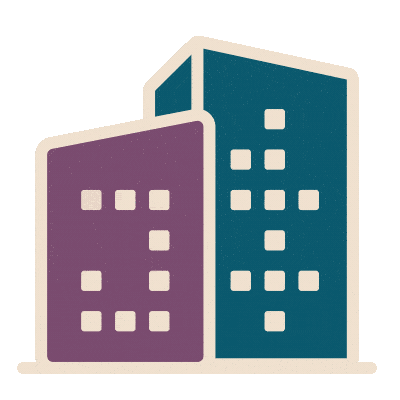Ernie Beck on learning new perspectives as a WELL AP
Ernie Beck is a Senior Consultant at NV5 Engineering and Technology—an engineering consulting and services company that is committed to environmental sustainability, social issues and governance.
Beck is a technology consultant and social entrepreneur who is passionate about the way technology improves our lives, the opportunities and challenges it creates, and its purpose in our environments.
As a Senior Consultant at NV5, he can help you make informed decisions that make economic, social and environmental sense.
“With offices nationwide and abroad, NV5 helps clients plan, design, build, test, certify, and operate projects that improve the communities where we live and work.”
Becoming a WELL AP helped Beck have more informed conversations around the benefits and importance of people-first places. Learn more about what the WELL AP credential means to him and his career in the sustainable design industry:
1. How did you first hear about the WELL AP? What got you excited enough about it to apply, study and take the test?
I first heard about WELL and the WELL AP credential 4 or 5 years ago when another technology consultant in my professional network became a WELL AP. Although I was unfamiliar with the WELL program, I was intrigued as to why a technologist would pursue achieving this credential, so I did some of my own research about becoming a WELL AP. At first, I thought it seemed interesting but not totally relevant to my day-to-day work; however, that all changed in 2020 with the COVID-19 pandemic when the need for creating healthier buildings became overwhelmingly evident. It’s clear that building technology plays an integral role in developing healthy buildings, so after working with architects, designers and developers on various building projects, I recognized that becoming a WELL AP would help me bring more value to conversations about design.
2. What’s one way becoming a WELL AP has impacted your life and/or career?
I approach my professional projects more holistically now that I achieved the WELL AP credential. I’m not just trying to solve challenges of communication—I’m helping people solve broader challenges focused around health and well-being. Becoming a WELL AP has given me a voice in the sustainability conversation I may not have otherwise had.
3. What are some things you’ve been able to do (or you plan to do) as a WELL AP you couldn’t before? Why are those things important to you?
As a WELL AP, I’ve been able to be a more active participant in discussions related to WELL Certification while working on design projects. When I’m working on a project, the credential helps me better understand the intentions of decision drivers and how my technology scope can be impacted by them.
4. Did anything about the WELL AP surprise you? What was it? How would you prepare WELL AP candidates for that?
From my experience, I would suggest dropping all assumptions and approaching the WELL AP exam with what Zen Buddhits say is a “beginner’s mind:” be ready to learn new perspectives, even if you think you already possess the knowledge. I came into the WELL program with an open mind, and the breadth of the various concepts still surprised me.
5. What’s something about the WELL AP–or the WELL movement in general–that isn’t often discussed, but you think deserves more attention?
I think there’s a misconceived perception that the WELL AP credential is just another “flavor” of the services LEED and other green building rating systems provide, but it’s so much more than that. There are areas where concepts from the WELL Building Standard and LEED overlap, but WELL’s unique differences, when paired with LEED’s guidelines, can work together to make for a really compelling, holistic building program.
6. Do you have any advice you’d give potential WELL AP candidates?
There are a ton of great, free resources out there to help you prepare and ultimately pass your WELL AP exam—take advantage of these. It’s also worth investing in any additional resources that will help you feel the most prepared you can be for the exam.
7. What does well-being mean to you? How do you incorporate it into your life and routine?
Well-being is about finding sustainable habits in your personal and professional life. Balance is key, and when your routine is out of balance, your well-being will pay the price. As a father of 3 young children and 1 very active puppy, I’ve learned this lesson the hard way. The point is that I come back to finding balance when I start to feel that slip happen. Making sure I get proper sleep, having access to natural light when working and walking or running a few miles each day help me keep my balance in check. Sometimes you just need to close your inbox, shut off your phone, and be fully present with the people and places that are important to you.
8. Is there a specific WELL concept, feature or set of features that have really resonated with you and that you’ve incorporated into your own life?
My formal training is in Audio Engineering, so it would be natural to expect that the Sound concept would resonate most with me. But, much to my surprise, the Air Quality concept was a real eye-opener for me. My oldest son has asthma, and I’ve seen how terrifying asthma attacks can be. When I realized how little attention was being paid to the air quality of our indoor environments, it was clear this was something I could be more conscious of in my personal life. Currently, to support my son’s well-being, we keep bedside portable HEPA filters in his room and a 3-stage H13 HEPA air purifier in our main living area. In my professional work, my team and I are actively exploring how data derived from IoT sensors can be used to influence the building of HVAC systems to improve the accuracy and response time for fresh air recirculation.
9. How do you think COVID-19 has impacted your WELL AP practice and approach? How do you think that will change going forward?
COVID-19 was the catalyst that made me want to pursue the WELL AP credential. As a building technology consultant, we’re not typically looking at well-being and sustainability certifications for our continuing education credits. After I realized how critical health and well-being would be for people returning to their offices, I decided achieving the credential was something I needed to do. Moving forward, I will leverage my knowledge of the WELL AP program to help my clients understand why certain smart, green building technology investments are important to making life better for everyone who enters their space. I also hope to take a more active role in the WELL concept development process and find ways to incorporate technology planning considerations into future iterations of the curriculum.







